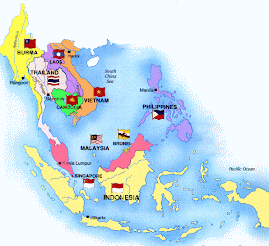My thanks to Prof. Stephen Joseph who has sent me the following publication. Please let me know if you would like me to forward a copy to you...
Biochar use for climate-change mitigation in rice cropping systems
abstract
This study estimated the climate change effects of alternative rice production systems in North Vietnam
with different residue management options, using Life Cycle Assessment (LCA). The traditional practice of
open burning of residues (System A) was compared with the alternative of converting residues to biochar,
which was returned to the same land area from which the residues were obtained (System B).
Pyrolytic cook-stoves and drum ovens were assumed to be used by households to produce biochar, and
the cook-stoves produced heat energy for cooking. The annual rate of biochar applied was determined by
the amount of biochar produced from the straw and husk available. We assumed that agronomic effects
of biochar increased with each annual biochar application until reaching maximum benefits at
18 Mg ha 1
, which takes eight years to be produced in pyrolytic cook-stoves and drum ovens. The largest
contributor to the carbon footprint of rice at the mill gate, was CH4 emissions from soil, in both systems.
Biochar addition reduced the carbon footprint of spring rice and summer rice by 26% and 14% respectively,
compared with System A, in the first year of application. These values substantially increased to
49% and 38% after eight years of biochar addition. The climate effect of System B was most sensitive to
the assumed suppression of soil CH4 emissions due to biochar application.
Ali Mohammadi a, *
, Annette Cowie a, b
, Thi Lan Anh Mai c
, Ruy Anaya de la Rosa a
,
Paul Kristiansen a
, Miguel Brandao~ d
, Stephen Joseph a, e, f
a School of Environmental and Rural Science, University of New England, Armidale, NSW 2351, Australia
b NSW Department of Primary Industries, Beef Industry Centre, Trevenna Rd., Armidale, NSW 2351, Australia
c Thai Nguyen University of Sciences, Thai Nguyen University, Thai Nguyen Province, Viet Nam
d Division of Industrial Ecology, Department of Sustainable Development, Environmental Science and Engineering (SEED), School of Architecture and the
Built Environment (ABE), KTH - Royal Institute of Technology, Stockholm, Sweden
e Discipline of Chemistry, University of Newcastle, Callaghan NSW 2308, Australia
f School of Materials Science and Engineering, University of New South Wales, Sydney, NSW 2052, Australia





